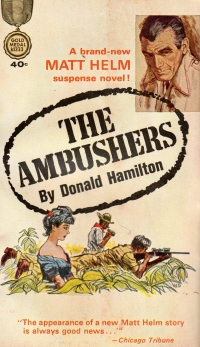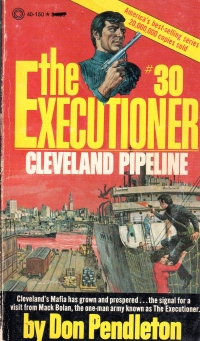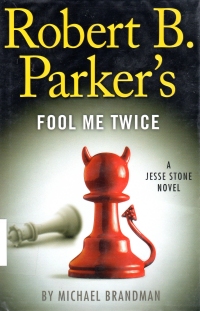Fans of John Donnelly’s Gold might remember that Robert Davies has a gaming setup in his living room that has a bunch of old gaming systems in it.
It does not, however, look this cool.
To be able to say "Noggle," you first must be able to say "Nah."
Fans of John Donnelly’s Gold might remember that Robert Davies has a gaming setup in his living room that has a bunch of old gaming systems in it.
It does not, however, look this cool.
At the Telegraph, Celia Walden skates around the issue Hollywood has kissed goodbye to the steamy sex scene:
According to Vincent Bruzzese of Ipsos, a market research company, sex has been all but eradicated from Hollywood scripts over the past 18 months. “Sex scenes used to be written, no matter the plot, to spice up a film trailer,” he said in an interview at the weekend. “But all that does today is get the film an adult-only rating and lose a younger audience.”
The author of this piece blames a number of things: The expense of getting actresses naked, the fact that women over 25 are making more of the movie-watching decisions (which flies counter to the argument that they’re choosing films with explosions, giant robots, and CGI aimed at teenagers, who spend most of the money on films).
The subhead kinda hints at the real impetus: “Today’s directors would rather appeal to a wider audience”.
Who do you think that wider audience is?
Is it the teenagers sexting each other who would be put off by a sex scene in a movie? Is it the American over 25-year-old demographic that’s dragging its overt sexuality into its forties and fifties or who dress or allow their children to dress too saucily because that’s all you can buy off the rack?
You know who that over 25-year-old woman who’s making decisions like that for her family that says no to a film with boobies in it? A Christian and/or a Republican, and that’s not Hollywood’s target as it is.
No, the wider audience Hollywood is going for and that balks at sex on the screen is the rest of the world.
What passes for steamy and risque here is prohibited elsewhere, and I bet Hollywood, the business side of Hollywood, knows that its bottom line depends upon those foreign receipts and that the artistic necessity of baring Halle Berry’s breasts is trumped by the business necessity of getting the film into the Chinese market instead.
It’s not the changing face of Americans’ or Westerners’ sensibilities that Hollywood is concerned with because American and Western values, on the whole, have not been somehow trending to the more prudish in pop culture. The rest of the world, though, has steadily remained more traditional in its moral outlook.
(Link seen on Instapundit courtesy temp blogger Sarah Hoyt.)
So I’m minding my own business in the shower, trying in vain again to scrub the slime of softened water off, when I’m confronted by a demon.
Fructis the Soul-Renderer, Flayer of the Weak, Builder of Bodies

I mean, seriously, who brands their froo-froo shampoo with a made-up Latin derivation that brings to mind not so much the scents of watermelon and lingonberries but the rising chant of monks in horror films featuring demons and/or William Shatner and the eventual mauling of a poor, innocent teenager.
Triple nutrition? That means Fructis must feast on the hearts of three virgins.
No, this is not my shampoo. It belongs to my beautiful wife. I use the more manly Suave. It’s not manly because its name implies being smooth and confident; it’s more manly because it costs less than a dollar a bottle.
I read Swedish History in Outline, and all of a sudden I’m trolling the grocery store’s Scandinavian section.
And buying lingonberries.

Klingon berries, you ask. No, lingonberries.
What are lingonberries?
Things you should never discuss at PyCon.
Aside from that, they’re little berries from evergreen shrubs, the kind of things you tell your children to never eat.
And they’re Swedish.
Just like Gustav Vasa, but not as sweet.
Oh, the things I do and put in my mouth to amuse myself.
This morning, I told my wife I was going to make my toilet.
Sometimes, I make my beautiful wife gape, and today was one such time. “What?” she asked.
She’d never heard the expression before, but that’s because she doesn’t read early 20th century detective novels. Did I get that expression from Agatha Christie or Ellery Queen? I forget.
But make one’s toilet does not refer to building a commode nor even to installing a commode and tank. Instead, it refers to shaving, washing up, and brushing one’s teeth in the morning.
Even my own generation doesn’t understand me. Truly, I am a man out of time.
 The strangest things strike me and make me a tad maudlin. Which, comes to think of it, would make an excellent name for a character in a book about a young man given everything who feels melancholy about it.
The strangest things strike me and make me a tad maudlin. Which, comes to think of it, would make an excellent name for a character in a book about a young man given everything who feels melancholy about it.
Tonight, I prepped a play bath for my children and dolloped a bit of Mr. Bubble into the running water, and I realized or futuremembered that some day, they won’t want toys in the bathtub or a dash of Mr. Bubble to add zing to the near-cleansing experience. I’ve already gamed it out: the older boy will one day decide Mr. Bubble is for babies, much like he decided at one point that Sesame Street is for babies, and that will be that. Perhaps the younger will hold out hope for another dash of the Mr. Bubble at some point, but he’ll follow his older brother’s lead, and he’ll stop asking for toys in the bathtub and for bubbles.
Eventually, the toys will get cleaned up and donated to a church sale or some such collection, but the last bottle of Mr. Bubble will just migrate to the rear of the cabinet. Periodically, I’ll clean and rearrange the contents of the cabinet, but I won’t want to dispose of half a bottle of Mr. Bubble. Eventually, I’ll say I’m saving it for the grandchildren, but I’ll not really know if I’m to have my line continue or if I’ll live to see it.
I’m sure I’ve mentioned before that one of the most saddening things I saw when I was carrion-crawling around the turn of the century, visiting estate sales to find books or games to list on eBay for a couple bucks, was containers of consumables marked a quarter. You never like to think this can of WD-40 that you’re tossing into your cart at Lowe’s as an afterthought might outlast you, but someday, one will.
No, I’m just Tad today because it’s not the complete recognition of mortality flashing before my eyes, but the fleeting recognition, again, that these days that I often find maddening or dull or somehow otherwise not lived entirely fully will pass and I will miss moments of them with great acuteness.
Or at least I’m planning very carefully to do so.
Note to self: stop buying the economy-sized bottles of Mr. Bubble.
 It’s been a while since I read a Matt Helm book (four and a half years, apparently). This book has two bits in it: Matt Helm goes to a Central American country to knock off the leader of an insurgency tied to Cuba and the Soviet Union. When he does, he sees that the insurgents have somehow gotten their hands on a road-mobile medium range nuclear missile which Helm doesn’t have the ability to disable or destroy as part of his mission. He also rescues another agent who is a basket case after torture and rape.
It’s been a while since I read a Matt Helm book (four and a half years, apparently). This book has two bits in it: Matt Helm goes to a Central American country to knock off the leader of an insurgency tied to Cuba and the Soviet Union. When he does, he sees that the insurgents have somehow gotten their hands on a road-mobile medium range nuclear missile which Helm doesn’t have the ability to disable or destroy as part of his mission. He also rescues another agent who is a basket case after torture and rape.
When he returns, he finds that the upper levels of the bureaucracy are disappointed in the results of the mission, as the missile might have fallen into the hands of a government nominally American-friendly. He drives cross country to a southwestern recuperative facility with the basket case. After a day at the facility, she’s less of a basket case and wants out–so he takes her onto his next mission, seeking out a Nazi war criminal plotting some sort of insurrective event from Mexico. He finds a pair of operatives from another country working to look for the fellow themselves, and he crosses and double-crosses them as they cross and double-cross him in the pursuit.
You know, this book was eighteen years after the war. Nazis as bad guys were believable. The book seems less dated, strangely, because Nazis have been the go-to bad guy in popular culture for seventy years. Can you imagine a movie from the 1970s where the bad guys were the Spanish monarchy? I think not.
Still, the book is a very good change of pace from the Executioner novels. Looking back, I see I bought this almost two years ago in Bolivar. Huh. I’ve read a number of books from that book fair already. Mostly the paperbacks.
This blog is getting to be close to ten years old now. And mostly it serves my nostalgia for books I’ve read and where I bought them.
Books mentioned in this review:
 This book is a collection of short stories, b-sides really, rushed out probably on the success of Stranger in a Strange Land. It includes the title story and a couple others.
This book is a collection of short stories, b-sides really, rushed out probably on the success of Stranger in a Strange Land. It includes the title story and a couple others.
Impressions:
A collection of his b-sides, really, but Heinlein (PBUH) really was a juvie rocket-jockey writer whose works achieved resonance because of the aspirational themes and understanding of human nature within them, and when he became popular and wrote adult themed Novels, they succeeded in spite of Heinlein sometimes. I like Heinlein, but with the good, you’ve got to take some not good. This book is half and half.
Books mentioned in this review:
 It’s been eight months since I’ve read an Executioner novel; at this rate, it will take me almost forever to read the forty or so that my beautiful wife gave me for my birthday two years ago.
It’s been eight months since I’ve read an Executioner novel; at this rate, it will take me almost forever to read the forty or so that my beautiful wife gave me for my birthday two years ago.
This book finds Mack Bolan in Cleveland trying to figure out why local business men are teaming up with–or getting used by–the mafia. Let’s see, there are gun fights, an RV that moves unobtrusively through the city and past the bad guys’ HQ, and a damsel to rescue.
As I have said before and will probably say again, these books are the equivalent of television episodes of a long-running program. If you like them, you come back. Some are better than others, but they’re all quick reads relatively.
Books mentioned in this review:
Springfield shopping center eyes face-lift:
The owners of Country Club Center hope to give the aging shopping plaza a face-lift. If City Council approves plans for a Community Improvement District, future customers could help pay for the renovation.
CIDs elsewhere in the city have been used to help pay for infrastructure improvements at new developments or for ongoing maintenance and other services downtown and on Commercial Street. If approved, this would be the first time the special tax district has helped fund an entirely private project.
Once anchored on the north by Smillie’s grocery store, the shopping center at Glenstone Avenue and Bennett Street houses a variety of shops including Cosmic Fish and Springfield Leather Co.
Well, there it is, then. We’ve reached the ad absurdum of the special taxing districts. Here’s a property owner looking to levy taxes on customers of its customers to pay for improvements to a downwardly mobile strip mall that no longer houses a grocery store or an election year GOP HQ but does have a head shop, a tattoo parlor, a discount smoke shop, and a combination leather goods / bead shop.
In a capitalist system, the owner would fund the improvements and raise the rents on the current or future tenants. But in the hybrid-and-rapidly-becoming-solely-cronyist system we have, the owner gets to levy taxes on its tenants customers for the project. Or might very well. That is, through the use and abuse of these special districts, every strip mall in Springfield will have the same legitimate claim to raise sales taxes on customers who shop there. Why not? Jared got it.
Full disclosure: I have bought a strip of miscut leather at the Springfield Leather Company this year, so I would be on the hook for an extra penny every so often. So obviously I’m making this argument because it would impact me personally and not on principle.
The St. Louis Post-Dispatch reports that the mortgage broker from Creve Coeur, Mo., is recovering after a sinkhole opened up beneath him Friday on the fairway at the 14th hole of a southwestern Illinois golf course. The pit that swallowed him was 18 feet deep and 10 feet wide.
I can’t laugh. The sudden media spotlight on sinkholes reminds me that I live in a sinkhole area; a couple years ago, one opened up beneath a home in a neighboring community, and although no one was hurt, it was a nightmare for a couple who couldn’t live in the house, couldn’t sell it, and had trouble with the insurance company. Also, the neighbor whose property abuts the old Old Wire road beside my house has mentioned he has a sinkhole in his property just a couple dozen yards from my house.
I’m getting better about worrying about political outcomes with the perspective that suddenly the ground might swallow me up or that the planet has entered an undetected asteroid belt and extinction could occur at any time. So who cares about the political system collapsing in a couple years?
 After reading the book on Sweden, I guess I got onto a bit of a roll reading this sort of book. This book is a short (150 pages including the index) history of Sicily. It starts about the Greek colonization mingling with the natives (the Sicils) and goes through the height of Sicily, which is right about the beginning of the Roman Empire. The Roman Empire period gets short shrift because Sicily was just an exploited province at the time.
After reading the book on Sweden, I guess I got onto a bit of a roll reading this sort of book. This book is a short (150 pages including the index) history of Sicily. It starts about the Greek colonization mingling with the natives (the Sicils) and goes through the height of Sicily, which is right about the beginning of the Roman Empire. The Roman Empire period gets short shrift because Sicily was just an exploited province at the time.
A second flowering occurs under the Normans. You know, I’ve mentioned my history bent has been toward English history, so my understanding of the Normans comes from William and his line. Although history books I’ve read mention the Norman holdings in the south, they didn’t go into how and why they were on Sicily. This book does, so I’ve added a bit to my knowledge.
Sicily is about the seventh of the size of Missouri, to give one perspective. It is a big area, and it was not united for much of its history. Fascinating. Of course, its position in the middle of the Mediterranean offered it some advantages early because it was a waypoint for trade, but once the bigger continent-based powers ramped up, they dominated it and it was controlled by bunchs of what the Romans would have considered barbarian tribes and later the Spanish. Huh.
I’m glad I read it. But I realized that most of the books I’ve read so far this year have been library books. That’s not cleaning out the fabled Nogglestead library’s To Read shelves. The last couple of times I’ve been to the library, I’ve asked my beautiful wife to keep me from the stacks. True story.
Books mentioned in this review:
New York City’s government is promulgating a set of advertisements arguing against teen pregnancy:
HRA’s new Teen Pregnancy Prevention campaign shows the high costs teen pregnancy can have for both teen parents and their children. The campaign features ads with hard-hitting facts about the money and time costs of parenting, and the negative consequences of having a child before you are ready. The campaign will be on display on subways and bus shelters citywide, and will also feature an interactive texting program and a video.



I’m sorry, did I say against teen pregnancy?
These ads argue against becoming a teenaged parent.
That is a very different thing entirely.
(Story originally seen at Trog’s.)
 Ever since I read Warriors of the Way (what? Four years ago? Already?), I wanted to read a history of the Finns and the Norse, but I never found anything in the library that fit those needs. Finally, (four years later), I found this book which is almost close enough.
Ever since I read Warriors of the Way (what? Four years ago? Already?), I wanted to read a history of the Finns and the Norse, but I never found anything in the library that fit those needs. Finally, (four years later), I found this book which is almost close enough.
It’s written by a Swedish economist (so I gather), so it comes from a modern political viewpoint which comes through in a couple of ways.
First, the things I learned about Sweden that I think are interesting: First, when the Norse Vikings moved west, the Swedish equivalents went eastward and ended up setting up trade routes and whatnot through the rivers of Russia and the inland seas there all the way to the Middle East. I did not know that. Also, Sweden really punched above its weight in the middle ages, becoming a sort of military superpower that had holdings and almost a bit of empire into the heart of Europe. Unfortunately, the homeland was a small patch of land in a very cold place that could not support a vast army that was not pillaging the rest of Europe, so it faded.
Another thing: In the book The Barrabas Creed, a Swedish prime minister is assassinated. That actually happened. In 1986, the prime minister was indeed killed. My beautiful wife also tells me this is mentioned in the Steig Larsson books. I guess that weighs heavily on the little country.
Something about Sweden that is interesting, and not flattering: it has a studied neutrality to it that it takes as a point of pride, but the book does mention treaties and defensive pacts that Sweden has gotten into throughout the centuries and particularly in the nineteenth and twentieth centuries where its treaty parties get attacked, and Sweden says, “Sucks to be you. We’re neutral.” This continued into the middle of the last century where Sweden wanted to head up a Baltic defensive alliance, and Norway and Denmark said, “Uh, thanks, but we’ll join NATO. Those mongrel Americans tend to honor their commitments.” Or words to that effect.
The book also gave me a bit of insight into the European mindset. Here in the United States, our political system has never, really, had a king. Sure, there was that guy in England way back when, but the transition from monarchy to constitutional republic was relatively quick (yes, I know it was almost fifteen years from the revolution to the Constitution). In Europe, the gradual erosion of the monarch’s authority to the parliament lasted for centuries. That has to affect your outlook and your traditions some.
As a contemporary bit of scholarship, as it is, the book lauds the left political parties and their triumphs in building a welfare state. The author tries to trace when Sweden became Sweden, and it’s not at the height of its military prowess or that. No, Sweden became Sweden in 1920 with the creation of its welfare state. Additionally, the United States is only mentioned a couple of times in the book, and the mentions don’t salute the United States. Basically, we get pegged for creating a world-wide depression in the 1930s and for causing famine when we entered World War I along with a couple other minor offenses to the world order. Well, one could hardly expect a professor to not ding the United States if it was a professor in the United States, so this should be expected. But it’s dings are just little snipes.
At any rate, I was glad to read this book. It’s from a northern European perspective which is different from the England-centric or classical-centric histories I’ve read a bunch of. As this is an “In Outline” book, it’s short and high-level (although the Parliament-loving is lovingly detailed). So I have a smattering now, and if I get a chance to read another like it, I’ll take it. Hopefully something with a bit more popular history in it and a little less political science.
Books mentioned in this review:
 I got this book from the library based on the reading I did on Brandman’s first Jesse Stone novel Killing The Blues. The books are incredibly similar.
I got this book from the library based on the reading I did on Brandman’s first Jesse Stone novel Killing The Blues. The books are incredibly similar.
First, we have the multiple subplots, including a young woman in jeopardy. This one is a rich girl acting out because…Uh. I forget. Because it’s good TV. So throughout the book, Stone busts her a couple of times, gets her into court, and gets her community service duty at the police station. It’s interludes to pad the book.
The main plot is about a movie being filmed in Paradise. It gets a little crazy, but not as crazy as the soon-to-be-ex-husband of the star, who wants revenge and has just enough money for meth and a cross-country trip to kill the only woman he ever seduced-while-bumped-up-and-then-married.
So Stone brings Crow back to Paradise to protect the starlet and, when that fails, to help run the bad guy to ground.
So it’s very much like the first book in the whole protect-a-school-girl, killer-from-California-comes-to-town thing going on. We’ve got another love interest who pops in and then departs. It’s still an okay bit of reading, but since it tracks so close to the first of Brandman’s efforts, I’ve got to wonder whether he’ll bring fresh ideas into the next book or just continue to go with what he knows and risk book sales on account of it.
Books mentioned in this review:
Senator McCaskill is upset:
Sen. Claire McCaskill is challenging a decision in the Air Force to release a colonel who had begun serving a prison sentence after being found guilty of sexually assaulting a woman in his home.
In a Senate Armed Services Committee hearing this morning, McCaskill grilled the head of the U.S. Central Command, Gen. James Mattis, about the conviction and release of Lt. Col. James Wilkerson, an F-16 pilot who had become an inspector general at a U.S. base in Italy.
“My heart is beating fast right now I am so upset about this,” McCaskill, D-Mo., said at the hearing.
Sen. Claire McCaskill is challenging a decision in the Air Force to release a colonel who had begun serving a prison sentence after being found guilty of sexually assaulting a woman in his home.
. . . .
The Air Force Times reported on Monday that a jury of four colonels and a lieutenant colonel had sentenced Wilkerson to a year in prison and dismissal from the Air Force after finding him guilty of sexually assaulting an American physician’s assistant.
But the conviction was reversed last week by Third Air Force Commander Lt. Gen. Craig Franklin after he concluded that there had been insufficient evidence.
McCaskill was strangely silent on the Department of Homeland Security’s recent release of thousands.
But then again, McCaskill grandstands as a watchdog of the military, not a watchdog of administrations controlled by her political party.
From time to time, I like to step away from my desk and run the vacuum cleaner over the floors as a break (sorry, ladies, I’m taken!).
During the course of many, many such excursions, I have sometimes heard the little tickticktick of a tiny Lego or action figure’s blaster sucked into the maw of the beast, and I’ve thought about what a horrible father I am: I felt no remorse in permanently cleaning the children’s toys in this fashion.
Now, I don’t go hunting to deprive my children of the prefabricated implements of their imagination. I can remember how it would have made me feel to know my parents did that. Well, I can imagine it; my sainted mother was not that diligent in housekeeping.
So I do look over their rooms in before I mechanically groom the pile of the carpeting, but I don’t take extraordinary measures when I hear what I know is a dispensable, soon-to-be-unmissed bit of plastic.
But today was a different story.
I was vacuuming the lower level, which is not a toy-rich haven of childhood delight. When they come down, they get out board games, though, and build little narratives with the Life cars and Scooby Doo Mystery Game ghost tokens. We make them pick up, and we straighten in addition to that. But today, as I hit that dark corner by the game shelves, I heard a TICKTICKTICK, and I remembered I meant to pick up that Scrabble tile.

You’d better believe I unseamed that vacuum bag from nave to chops to retrieve a Scrabble tile. Which, by the time I got to it, looked like a little lion with all the cat hair on it. I cleaned it up, of course, which means it is the cleanest Scrabble tile we own right now.
But now I have a greater secret to hide from the children: Not only does Daddy sometimes unrepentantly vacuum up their toys without retrieving them from the garbage, Daddy will gut the dirt sack to get his toys back.
Back in 2011, the Republic School District (the school district in which I live) removed some books from its library and triggered a national media firestorm that eventually led to the school district to reverse the removal.
The school district in Buffalo, Missouri, is not making that mistake:
A committee has elected not to remove a coming-of-age novel from the library at the middle school in Buffalo after the principal filed a formal complaint against the book.
The book in question apparently has a sex scene in it. You know, when I was in middle school, I was reading adult novels with sex scenes in them, but I had to go to the local library to get them. I don’t think M. Gene Henderson Middle School or North Jefferson Middle School stocked those kinds of books. Of course, in those days, adults did not write books for children and put sex scenes in them. Does this serve to depict reality or to normalize, that is, to create reality? I dunno. That’s a question for another time.
What this illustrates, though, is that national grievance concerns are impacting local-level and community-level governance as they seek to avoid controversy in determining standards and offerings that reflect their community, not the community of the loudest and best-funded nationwide.
Power to the people. Unless the people use that power against the interests of their betters elsewhere.